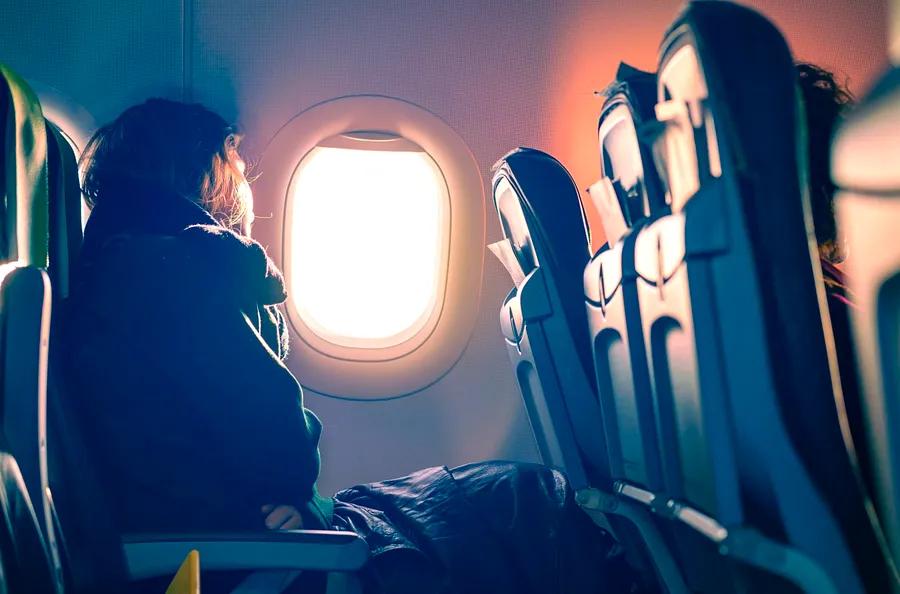The Individuals Offering Their Rental Homes to Refugees

On February 24, as Desislava Tosheva watched the news about Russia’s invasion of Ukraine, she found herself staring at her couch.
“I was sitting in my living room, thinking about the many people who would soon be forced to flee, and how those with financial means would have a clear advantage,” she recalls.
“I kept looking at my couch, thinking how wonderful it would be to offer it to someone in need.”
Tosheva, from Sofia, Bulgaria, believed others would share her sentiment. So, she took action and created a Facebook group: “Accommodation, Help & Shelter for Ukraine.”
“I expected no more than 200 members, but even that would have been enough – helping just one person can mean the world to them,” she says.
She was mistaken. As of now, the group has grown to 80,000 members. Ukrainians and potential hosts post their needs and offerings, and they can either connect on their own or with help from the admins. Tosheva and her team have already arranged housing for about 90 refugees.
Many of the hosts are offering properties they once rented out on Airbnb or through other platforms.
Now, these vacation properties – including a castle in Ireland – are being repurposed to shelter those who have lost everything.
They’re not alone in this. Though the travel industry was devastated by the pandemic, many in the sector – from property owners to hoteliers – are now donating their accommodations to help Ukrainian refugees.
One city is using its European Capital of Culture title – typically a draw for tourists throughout the year – to highlight and celebrate Ukrainian culture. Here are some of their stories.
‘I feel uneasy living my life right now’

Nestled in the heart of Somerset, the village of Compton Dundon boasts thatched cottages, a medieval church, and sweeping views of the surrounding hills, including the legendary Glastonbury Tor. It’s a perfect destination for those craving a countryside retreat in the West of England.
After retiring as a business manager, Caroline Williams started connecting with potential guests, renting out rooms in her charming farmhouse and a converted barn on Airbnb.
However, since retirement, there was a deeper feeling weighing on her: “I was searching for something more meaningful to do,” she shares.
Today, she’s offering two rooms in her farmhouse and half of the barn – a self-contained apartment – to house refugees.
“I was out in the garden, enjoying the sunshine, and couldn’t stop thinking about those who didn’t have the luxury to do the same,” she reflects.
“I feel uneasy living my life right now.”

Having previously signed up to host British key workers during the pandemic, Williams turned to Airbnb’s Ukraine refugee program this time. A week later, the UK, which had initially denied entry to Ukrainian refugees, launched a sponsorship program, which Williams also joined. Additionally, she registered with local charities to help match her with refugees.
Her vacation cottage, Bracken, will remain available for short-term bookings and emergencies. “It’s my income, so I need to keep it open for regular guests,” she explains. However, the two rooms in her house are available for long-term stays. Williams believes the rural setting would be ideal for a family, rather than younger individuals staying alone.
“I can’t begin to imagine the emotions, insecurity, and fear these people are experiencing, as I’ve never been in such a situation myself,” she says. “But I do know what it feels like when someone reaches out, supports you, and helps you feel safe. That’s what I want to offer.”
‘I asked, would you mind if I used your apartment?’

Gordon Cross, a UK citizen who has lived in Budapest for 20 years, explains that “the vast majority of everyday people” in Hungary are stepping up to help the refugees flooding across the border – including those who typically rent out vacation properties.
Cross, who runs a property management business in Budapest with over 100 clients, says that Hungarians are eager to ensure “everyone has a place to sleep when they arrive.”
He wanted to be part of the effort, too. So as soon as the refugees began arriving, he took stock of his properties. Out of 100, eight were vacant – and he immediately reached out to the owners, asking if they’d be willing to open their apartments to those fleeing the conflict.
All of them agreed.
“I simply asked, ‘I’ve gotten involved in this, would you mind if we used your apartment?’ and most of them offered their properties without hesitation,” he says.
“A few needed a little persuasion, but the owners I knew well hardly needed convincing, especially those with children. The thought of a mother and her kids having to leave everything behind and go to an unfamiliar place – it didn’t take much to sway them.”
One of the apartments belonged to a group of owners who had just completed an expensive renovation and were planning to sell. “A couple of them hesitated, saying ‘Oh, we were going to sell,’ and I said, ‘Just watch the news.’ Last week, I got a message saying, ‘Go ahead.’”
Some have concerns about the long-term situation – one has even set a six-month limit. But for now, Cross is more focused on helping the refugees than on the future of his business.
“Being on the ground, [worrying about long stays] isn’t my top priority. I need to take care of my owners, as it’s my business, but right now, my main goal is to convince more of them to open up their apartments,” he says.
‘They need it more than tourists’

It was while watching footage of people at a Berlin train station holding up signs offering their homes to refugees that Jo Mackay turned to her husband.
“We exchanged a glance and came to the same conclusion at the same moment – we’re fortunate enough to own two houses we rent out, but we should offer them to someone who needs them more than a vacationer,” she says.
Mackay runs Bookings for You, a luxury villa rental company with properties in Italy, France, and Monaco. In addition, she owns two properties on Lake Maggiore, which she rents through her company.
“We’re fortunate to have these properties, and it’s the right thing to do,” she explains. “When we bought them, we relied on rental income to cover the mortgage, but after having them for over a decade, life has become a bit easier. I was on maternity leave when we purchased them, and now I own a business. We’re in a position where we can do this, and it feels like the right thing to do.”
She already has bookings for the summer but is prepared to cancel them. If refugees need her homes, she will offer her current guests a complimentary upgrade to a more luxurious property within her company’s portfolio. “I’ll be surprised if anyone turns that down,” she says.
The two adjacent properties, each with three bedrooms, are nestled in the hills above Luino on the east side of Lake Maggiore, close to the Swiss border. The homes sit in a small hamlet with just three other properties. One side is bordered by a mountain stream, while the other is graced by peacocks strutting proudly. A nearby neighbor keeps donkeys and cows adorned with clinking bells. Mackay believes the serene environment will be ideal for families in need of a peaceful retreat. The local property managers are also offering to assist the newcomers with anything they may need.

While an idyllic lakeside retreat may seem remote, Mackay points out that Lombardy, the region where her villas are situated, is home to the largest Ukrainian community in Italy. She hopes this will allow her to match families in need with her properties. To ensure they’re put to good use, she’s reached out to local charities and registered the homes with Airbnb’s refugee program.
In addition to listing a spare room in her UK home, this week Mackay also contacted the owners of properties she represents, asking if they would consider offering their homes. Several have already stepped forward, with some offering their villas free of charge, while others are asking only for utility bills to be covered. One owner is even preparing a large property in Germany that can accommodate up to 17 people.
'This war may reveal the worst of humanity, but it also reveals the very best,' says Mackay.
'We are fully aware of the privilege we enjoy living in a safe country,'

Elisa and David Ngog had been renting out their Budapest apartment for a year when the invasion of Ukraine began.
Gordon Cross's clients, the Ngogs, relocated to Hungary in 2018 when David Ngog, a former professional footballer who played for clubs like Liverpool and Paris Saint-Germain, joined Budapest Honvéd.
Although they now live in Greece with their two children, the Ngogs wanted to maintain their connection to Budapest, which led to them keeping an apartment just a short walk from their old home and a few blocks from Hungary’s Parliament.

'Our son was born in Budapest, making the city incredibly significant to us,' Elisa says.
'In a city where apartments often lack natural light, we were fortunate to find one with a spacious balcony, and I immediately fell in love with it. Creating a space where people would feel at home and happy was very important to us,' says Elisa.
'The people fleeing Ukraine may not find peace immediately, but I hope our home can offer them some rest and a brief reprieve from everything they’ve endured,' she adds.
The couple had been following the news closely from the start of the war. 'When the first refugees began leaving, I thought about offering help, but wasn’t sure how to formalize it,' Elisa shares. A few days later, Cross reached out to all his clients, asking if they would consider offering their properties.
The Ngogs were on their way to a coffee shop when they received the email. By the time they sat down to enjoy their drinks, they had already decided to say yes.
'We didn’t hesitate for a second,' David says.
'We understand how fortunate we are to be in a country where we’re safe. If you have the means to help, it’s clear that you should,' says Elisa.
Since receiving Cross’s email on March 3, the Ngogs have hosted two families in their apartment, each for a short stay.
'When Gordon sent us a video of a little girl playing, it filled my heart with so much love,' Elisa recalls.
'Now, there are three children in the apartment. It makes us feel like we’ve made a difference, even though we haven’t really done much,' she says.
Their friends in Budapest have also been a big support, welcoming the families and providing food, toys, and children’s shoes when needed.
While some property owners have imposed time limits on their offers, the Ngogs have committed to making their apartment available for as long as needed.
'I’m incredibly grateful for the life we’ve built, and we’re fortunate that we don’t rely on the rental income to sustain ourselves,' Elisa shares. 'We’re content.'
'Some influencers live in their own little world,' says Kash Bhattacharya.

Kash Bhattacharya was at Singapore’s Changi airport during a 10-hour layover, coming back from Thailand, when he first read the news about Ukraine.
The Berlin-based travel blogger, who runs the site Budget Traveller, immediately messaged his friends Rosie Willan and Charlotte Hall, who operate the UK-based hospitality marketing agency, Stay the Night.
In May 2020, they launched the 'Adopt a Hostel' initiative, encouraging travelers to buy future stay vouchers to help youth hostels during the downturn in the travel industry.
This time, they decided to create a platform that would collect offers of accommodation for refugees from around the world. Within a day, their colleague Chris Richardson had set it up. So far, the platform lists over 225 offers in 19 countries, ranging from individual families opening their homes to rental units, to the Generator Hostel in Berlin’s vibrant Prenzlauer Berg area, and 20 properties from European hotel chain Penta Hotels.

'We didn’t know what to expect, but we wanted to see what we could do – and the incredible response we got only motivated us further,' says Hall.
'Hospitality for Ukraine' is more of a directory than a booking platform, but Bhattacharya describes the response as 'overwhelming,' with charities on the ground reporting that the platform is helping to house refugees – particularly those of color, who have faced extra challenges in finding safety.
Hall mentions that they are currently in talks with larger brands like Best Western to include their properties in the directory.
'Some influencers seem detached from reality, continuing to talk about their own issues as if there’s no war going on. But when it comes to using influence to make a difference, I believe there’s always more that can be done,' says Bhattacharya, who was impressed by how the travel community responded.
His next mission? To leverage his influence to encourage travelers to visit countries near the conflict, like Poland, showing that they remain safe destinations. 'These countries are supporting refugees, and they need tourism's support now more than ever,' he explains.
'It's heartbreaking when people cancel their trips to Poland,' he says. 'The best thing travelers can do is visit these places and engage with the refugees.'
'If you own a company, you have social responsibilities,' says Schiff.

Berlin, one of Europe’s hottest destinations, is brimming with stylish hotels, including the eight AMANO properties, which have opened their doors to refugees, offering them free accommodation.
The AMANO group has also been sending essential items like soap, blankets, and other necessities to the Ukrainian border, thanks to a German-Ukrainian designer who began organizing aid convoys as soon as the crisis started. According to co-founder Ariel Schiff, the group initially hosted about 25 truck drivers involved in the supply efforts. As refugees have begun arriving in Berlin, the hotels have extended their hospitality to them as well.
'It’s a given – helping is just what you do,' says Schiff when explaining his decision. 'It’s nothing extraordinary – when people are in need, you help. And if you run a company, you have a responsibility to act socially.'
With a steady flow of refugees arriving in Berlin, the AMANO group is doing its best to offer shelter wherever possible.

'At times, volunteers will call late at night, around 10 p.m., and say, 'We have three women and children stranded on the street.' I immediately call my manager and let them know, 'Three women and three kids are on their way.' There has never been a 'no' so far,' says Schiff.
'There are moments when we’re fully booked, but somehow we always manage to find at least one or two rooms available,' he adds.
Schiff highlights the remarkable response of Berliners during the ongoing crisis, with many stepping up to provide aid.
'We have a hotel near the central station, and it's heartwarming to see how many people have volunteered to help. Many of my staff go there after work. The sense of solidarity is stronger than I’ve seen in years. While there's nothing positive about this war, the way people are coming together to support each other is something special,' says Schiff.
'It’s reminiscent of the struggles we faced during World War II,' says Reinikis.

As one of the 2022 European Capitals of Culture, Kaunas, Lithuania’s second-largest city, was gearing up for a year in the global spotlight.
With the theme ‘From Temporary to Contemporary,’ Kaunas aimed to confront its complex history. The city, once the temporary capital of Lithuania during World War I and II, had endured Nazi occupation and Soviet annexation, along with the brutal 1972 ‘Kaunas Spring’ uprising. A series of exhibitions exploring themes of war, occupation, and resistance were planned, featuring artists like Marina Abramovic, William Kentridge, and Yoko Ono.
Mindaugas Reinikis, head of marketing and communication for the Capital of Culture initiative, says that Russia’s invasion of Ukraine hit particularly hard because Kaunas has experienced similar struggles before.
‘What is happening now is tragically fitting,’ Reinikis reflects. ‘It mirrors the horrors we endured during World War II. While the players and countries have changed, the cruelty remains the same – one tyrant attempting to erase entire nations. This brings our program into sharp focus,’ he adds.
Since the Russian invasion began, Kaunas has seen a 30% surge in ticket sales for its events. ‘War still resonates deeply in Kaunas. Today, we’re 95% Lithuanian, but before World War II, our population was 30% Jewish,’ says Reinikis.

As the events take on deeper significance, Kaunas is now shining a spotlight on Ukrainian culture through its new initiative, CulturEUkraine.
The city’s historic central post office, a modernist gem that has long served as an exhibition venue, is now draped in the colors of the Ukrainian flag. The third floor has been transformed into a creative space for refugees, offering not only a place to create but also to gather and receive both practical and psychological support. Once refugees are ready to engage, a residency program for artists will allow the public to engage more directly with Ukrainian culture. They've already received inquiries from theater groups and individual artists.
Kaunas recently hosted a concert featuring three classical musicians from Ukraine, who have since been hired by the Kaunas and Vilnius Philharmonics.
Reinikis aims to leverage the influx of tourists this year to maintain the focus on the ongoing crisis, while helping to preserve Ukrainian culture within the growing diaspora. He hopes that the Capital of Culture status will spark public discussions on what platforms can be offered. ‘The center isn’t a showcase,’ he says, ‘but we hope it will become a hub, incubating new arts initiatives or collectives and providing a space for creativity to flourish.’

1

2

3

4

5
Evaluation :
5/5